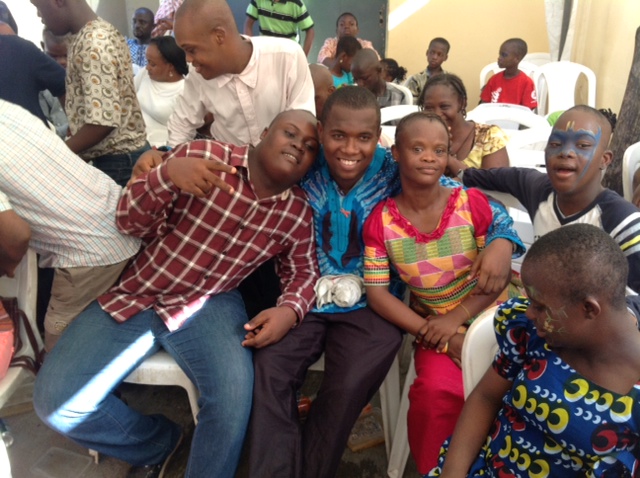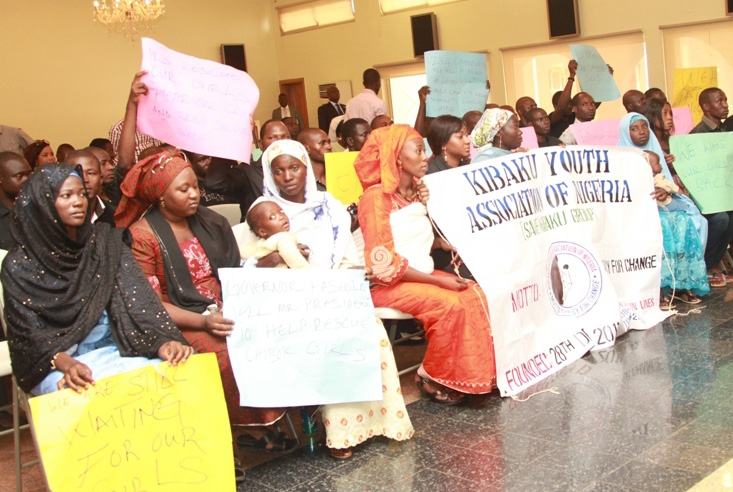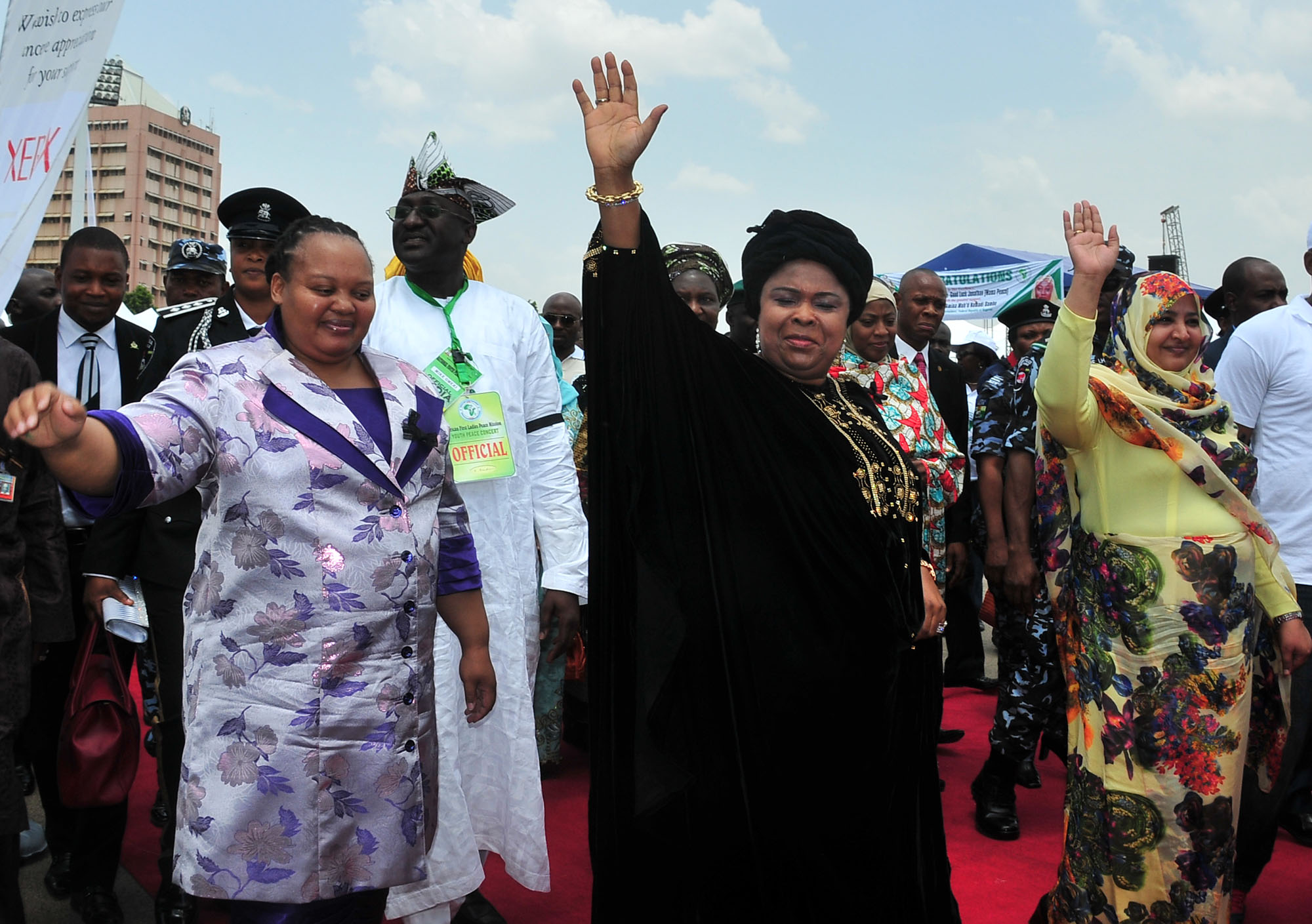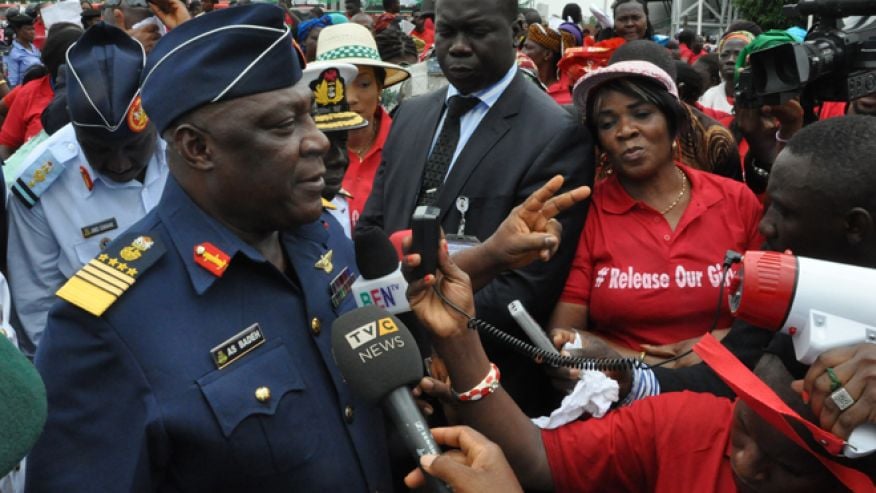Nabila is only six years old, but she possesses extraordinary senses that make her detect her mother’s presence from several metres away.
She also knows when her mother is on the phone even before hearing her voice. She genuflects when counting numbers, a result of the therapy sessions she goes through six times a week.
If she likes you, it won’t matter that her speech is impaired: within five minutes, she would have learnt how to pronounce your name. Although six, Nabilolo — as she is fondly called — has the learning ability of a four-year-old. She is a devout Arsenal fan, and she enjoys watching the club’s matches with her mother.
But her pains are that she cannot use her legs and hands independently, because she suffers from Cerebral Palsy (CP), a disorder resulting from damage to the motor control centres of the developing brain.
Advertisement
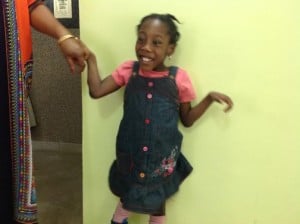
“CP is a paralysis or weakness that often accompanies nerve damage in children consequent upon lack of oxygen in the womb and infections in early childhood, such as severe jaundice, toxin consumption, lead poisoning and physical brain injury, the symptoms are loss of sensation, uncontrollable movement, lack of language coordination, and balance,” Dr. Adeola Oke, a cerebral palsy therapist, explains.
Nabila’s mother, Mrs. Raliat Ibrahim, knew nothing about the disorder until she discovered she would have to deal with it.
“I didn’t know anything about cerebral palsy. I had only heard something about Down Syndrome. We noticed Nabila’s deficiencies when she was eight months, during one of her periodic checks,” she recalls.
Advertisement
“Apart from being a very quiet baby, her development was slow. Anytime I asked the pediatrician, he always said that kids do not develop at the same rate, and that we should watch her.”
Raliat’s fears were confirmed when the matron who oversaw Nabila’s delivery discovered — while playing with her — that she had no “stepping,” and therefore advised a hospital check-up.
“I was a bit worried because my best friend’s child whom Nabila was older than by a few months was already learning to sit, but my child could not,” she continued.
“If you laid her down, she would just be there. Whatever position you kept her, you would meet her there; we thought she was just quiet. So we went to the hospital and the pediatrician said that her muscles were not strong enough, and that some kids were like that. As a mother, from the way she was talking, I knew that all was not well. It was shocking, I cried bitterly that day.”
Advertisement
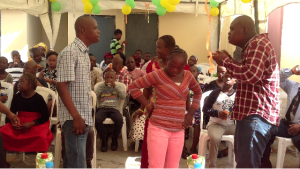
She spent the first week in self-denial but, drawing on her philosophy of life, she concluded that Almighty Allah couldn’t have given her a burden that she couldn’t handle.
“So I concluded that God must want to use me to do something, for sending this child to come through me, because I am a very strong person, very spiritual,” she says.
“So we started our research, and landed in Dubai, and from there, London. They said she would outgrow it, but after one year, she couldn’t sit or crawl. She cried feebly; she could not talk; she could not hold her head up. When you put her down, her head flopped.”
Raliat would later accept that her child would walk whenever Allah wills her to. Although therapies were recommended only three times a week, she ensured they held six a week.
Advertisement
“She rested only on Sundays. I was pushing her to get to that level. It was then I discovered her muscles were not developing well; there was no muscle mass. She didn’t have the strength in her lower limb to support her, so we went to a nutritionist, who gave us special diets for her.
“Then it was time to get her to school because we couldn’t keep her at home. She has two other sisters who were schooling. She couldn’t just sit at home, because she would remain a vegetable. I was determined to ensure that Nabila has a life that every child her age has.”
Advertisement
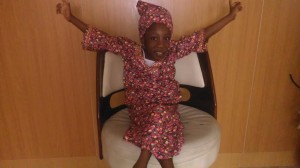 But raising Nabila is not all dark and gloomy. She is a very strong child who continues to radiate self-confidence, despite her challenge.
But raising Nabila is not all dark and gloomy. She is a very strong child who continues to radiate self-confidence, despite her challenge.
“We go for parties; we take her to watch movies. If Nabila doesn’t sit on the chair, she sits on the floor,” she says.
Advertisement
“If we go to parties, we hold her hands to stand, and she dances, because we don’t hide her. We celebrate every mile stone.”
A day came when she crawled. And she was celebrated, just as when she began calling the names of everyone in the family.
Advertisement
“She loves compliments, so, in every little thing, we give her compliment. I think she’s been able to live with her challenge, apart from walking. Nabila doesn’t believe anything is wrong with her. If she wants to reach out to you, she pulls you to her level to get attention.
“She is getting to a level where she is at par with the normal six-year-old child — only that she is physically limited. I call her a special child because if I am coming home — and we lived on the fifth floor of an apartment — and I am on the second floor, Nabila knew mummy was coming home. Her senses are extraordinary. When I travel out of the country, the moment a phone rings, she wakes at night and says ‘mama’ even before I utter a word to her.
“From my own part, I have had to give her extra care. I had to hire an extra nanny, because somebody must be with her 24/7. I couldn’t leave her alone, so that she would not strive to do what she couldn’t do, and injure herself in the process. She has extra nannies at extra cost, a shadow that stays with her school I have had to pay extra for her therapy. I want her to have the best.”
For now, Raliat is unworried by her daughter’s academic standing. Instead, she is more interested in getting her to use her hands, getting her to be independent.
“Now, Nabila can dress herself. She can feed herself, so what we are trying to get her to do is to go to the bathroom herself and give herself a bath, no matter how minimal, such that she does not rely totally on people.
“She will learn a skill with her hand. But right now, she is learning to write. She can sing; she can count.”
In all, Raliat wants parents with similar experiences not to hide these children, because it is only when they are seen that they can receive assistance.
“Every child is important,” she concluded. “God is the creator of every human being; and if he has chosen to pass one of them through you, then he or she should be celebrated, because these special children thrive in love and encouragement.”
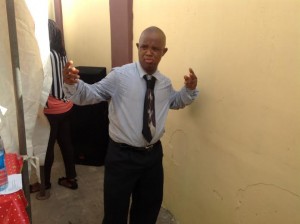
But Nabila is not alone in her world of battling a challenge she knew nothing about. Elsewhere, Ajoke Allele is dealing with Down syndrome, a genetic disorder caused by presence of a third copy of chromosome.
Women who give birth at old age are usually victims, and the consequences for the child are typically associated with physical growth delays and mild intellectual disabilities that mean adults reason like eight or nine-year-olds.
At a party organised by Chaste Foundation to commemorate the Down Syndrome Children’s Day, Ajoke has little time to harbour thoughts of her disabilities. Instead, she thrills the audience with her enigmatic dance steps.
She might cut the picture of a three-year-old although she is six. She might be unable to talk clearly. Her eyes may be slack, her tongue protruding, her hands short, and her nose and head flattened. But she knows she can dance. What she doesn’t know is that her mother died while giving birth to her.
“At birth, she was diagnosed of Down Syndrome, and also misdiagnosed of having a hole in her heart,” says her aunt, Mrs. Felicia Balogun, who assumed the role of her mother.
“I was very worried when, a month after her birth, I noticed that Ajoke wasn’t developing. At birth, she weighed 1kg. A month later, when there was no improvement, I took her to the hospital, where she was diagnosed with Down Syndrome and a hole in the heart. They advised us to fly her to India for operation as soon as possible.
“To our greatest surprise, after checks in India, the doctors said apart from the Down Syndrome, there was no hole in her heart. But it has not been easy financially; a foundation sponsored our trip to India. I have had to employ people in her school to take care of her. I stopped using diapers on her only when she was five.”
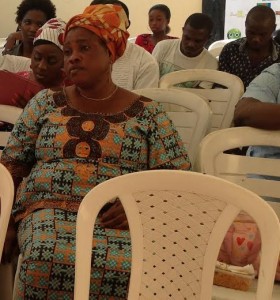
And Felicia is happy with Ajoke’s recent progress, which she credits to her schoolmates.
“They have been very helpful,” she says. “When they are going to the toilet, they take her along so that she will learn, and see how they do it.”
Like Raliat, she thinks these children should be celebrated. On Children’s Day, perhaps the one way these special children can be celebrated is to spare a thought for them and know that whenever we come across them, we owe it to them to respect their right to normal living.
Add a comment
